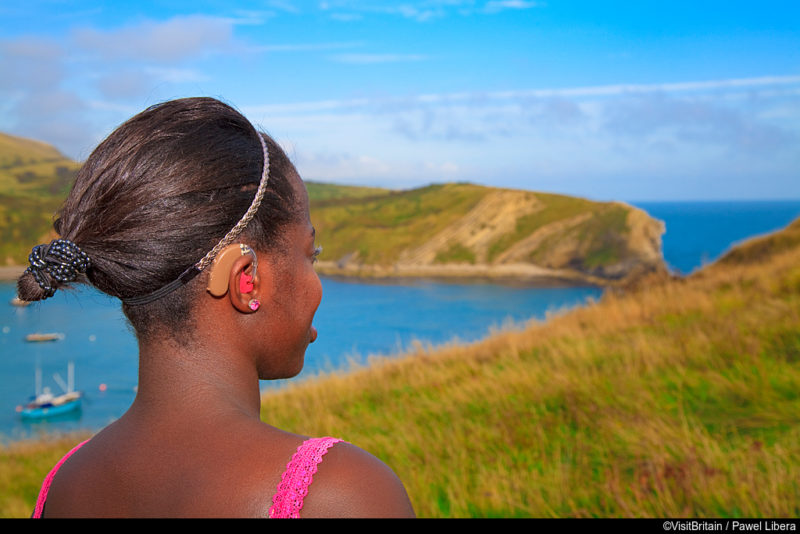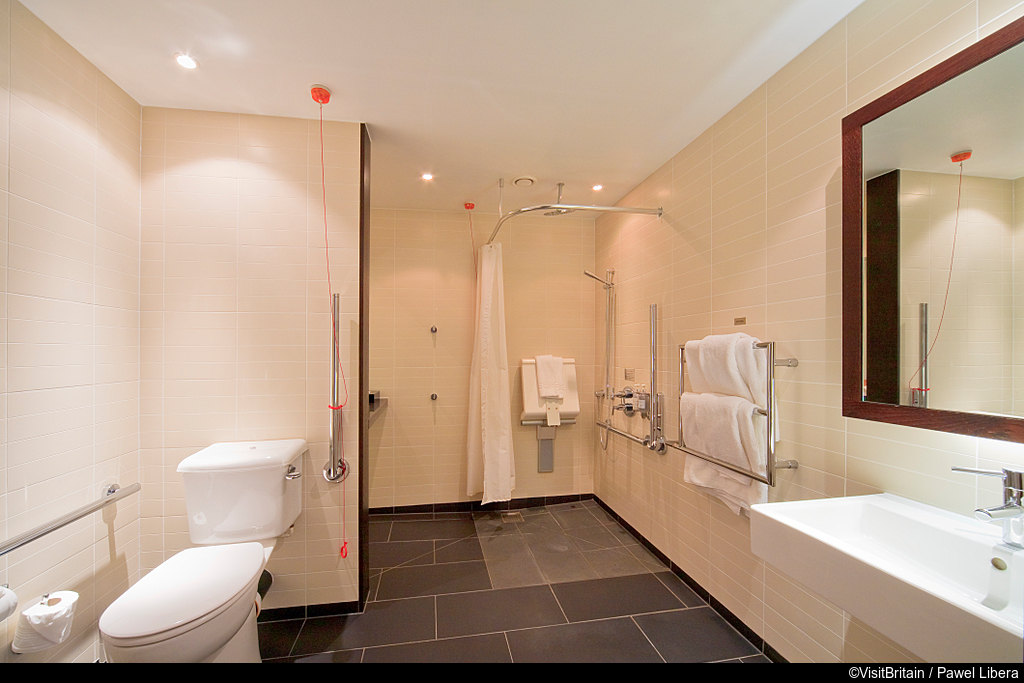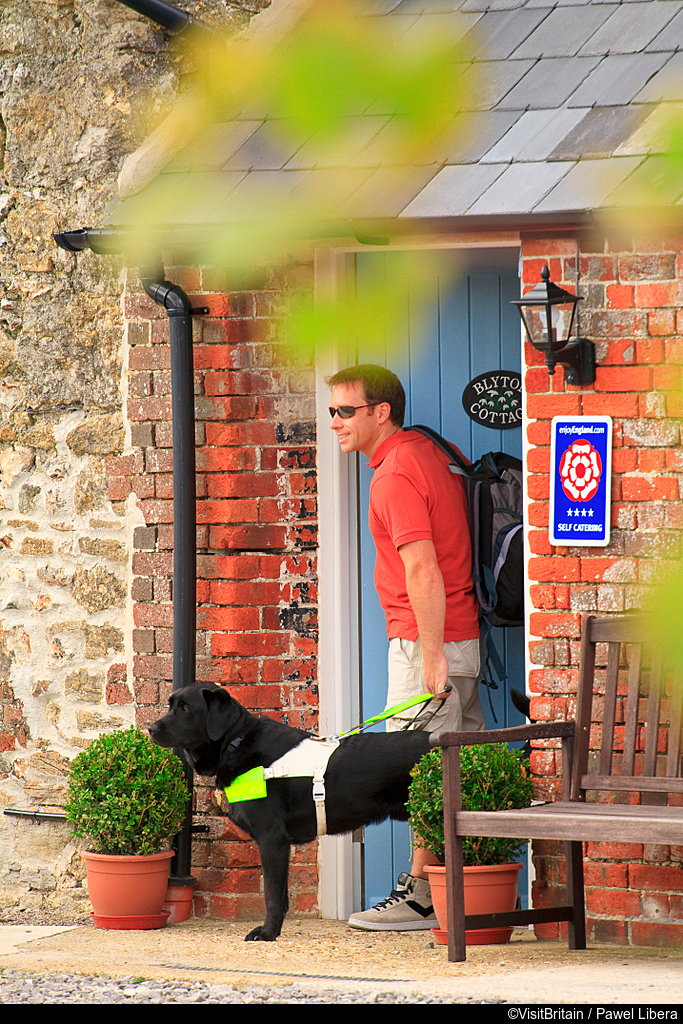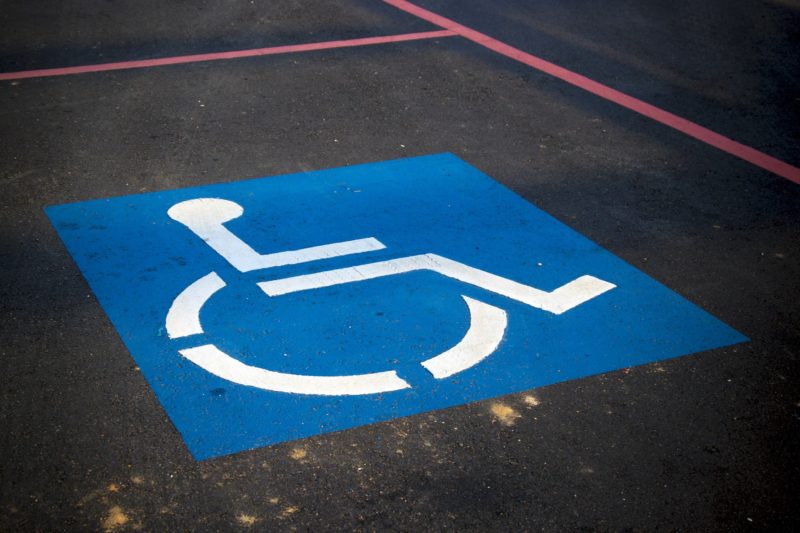Last updated: 21 June 2023
Aside from numerous stints on crutches, a knack for slipping over and hurting myself at any moment and suffering some rather persistent lower limb inflammation, I’m relatively healthy for the most part.
Choosing an accessible hotel has never really been on my radar until a recent experience booking one for a family member with some specific needs.
Regardless of where or why you choose to travel, everyone needs somewhere to rest your head at the end of the day. If you are, or travelling with, a disabled traveller finding a hotel that meets these needs takes planning.
There’s a multitude of things to consider when needing to find an accessible hotel. There’s rooms with disabled facilities, such as bathrooms with grab rails and walk-in showers, wider parking spaces with proximity to the hotel and porters willing and able to transport bags from car to room with minimal fuss.
[AD] – This post was commissioned by Premier Care to give my thoughts on booking accessible hotels and may contain affiliate links
Establishing Their Needs
Accessibility can mean so many things to so many differently-abled people, not all needs are the same and also, not all hotels’ interpretation of accessible will be the same.
What you, as an able-bodied hotel guest may take for granted, can be a nightmare for those less able-bodied individuals. That’s why it’s vital to listen to your travel companion, ask them what they need by way of support and services in in order to find a hotel that fully meets their access needs.
Create a list and write down any aspect you feel may require any sort of assistance or special circumstances that can be accommodated. Don’t be afraid to get in touch with the hotel directly if you have specific questions about what can, and can’t, be accommodated.
VisitEngland has compiled an easy to use guide to decipher if a hotel is likely to meet the level of accessibility needs.
Accommodation that displays any of the official logos have been independently assessed against demanding criteria with ratings are split into three categories; mobility impaired and older people, visually impaired and blind people and hearing impaired and deaf people.
While this is great, it only applies to the UK. While booking hotels elsewhere in the world, here are some things to consider when booking an accessible hotel for someone else:
Accessible Hotels for Limited Mobility or Wheelchair-users
Accessibility is a tricky word. Simply asking is the hotel accessible? Definitions of the term may differ widely meaning that even if the answer is Yes, the result may or may not be fit for your purpose. At the very least accessible hotels common areas should be equipped with ramps and handrails rather than steps, but in my opinion accommodating guests with mobility issues goes further than this.
Reception should be equipped with a lowered portion of the desk to accommodate a wheelchair user and comfortable chairs nearby for those needing to sit.
Onsite dining areas should be barrier free, providing enough space for wheelchair and walking frame maneuverability. Not everyone wants room service breakfast every day!
Other things to consider are doors. Do the doors automatically open? Is the section of that very fancy revolving door wide, and slow, enough for a wheelchair user plus an assistant?
Bathrooms
Barrier-free en suite bathrooms should include with a fold down seat in a step-free shower, also known as roll-in shower or a wet room, equipped with grab rails in the shower and the loo, an emergency assist alarm and taps with extended levers for ease.
In Room
Accessible rooms typically come with wider doors to accommodate a variety of mobility requirements.
It’s safe to assume that a wheelchair friendly room should also be suitable for those using walking sticks and frames. This includes ramps and elevator accessibility to the rooms.
Some all-important features of an accessible room may be easily overlooked by able-bodied individuals and one of these things is space. Seemingly simple things like lever-type door handles can make a big difference.
Specifically designed adapted bedrooms are usually larger than the average room. Beds should be movable, have additional space around and under the bed, and an adjustable mattress height to accommodate wheelchair users who need to transfer from their chair into the bed.
Are air-conditioning and light switches at mid-height and reachable from the bed? Similarly, are there power outlets by the bed to charge electronic devices or operate sleep-aid machines like CPAPs.
Accessible Hotels for those with Limited or Minimal Hearing
I’ve had an element of deaf awareness for my entire life with a parent who suffers hearing loss. I grew up with TV with captions, learnt very basic sign language and we developed our own language to communicate – all very necessary when someone who can’t hear you.
You can imagine my delight when I discovered there are some hotels which have hearing loops installed, and even offer vibrating pillows and flashing beacons for guests in their rooms. Perfect for when you need to know your room service has arrived or in case of a fire alarm.
Hotels with an inclusive design of common areas can enable deaf travellers to communicate their requirements to staff. Like many disabilities, the extent of one’s hearing loss is a sliding scale, not all deaf travellers are profoundly deaf. There may be some who have a mild hearing loss who may not yet be willing or able to use hearing technology such as hearing aids or cochlear implants.

Offering a choice of quiet space or reducing background music in isolated areas in bars and restaurants can facilitate communication between disabled guests, their parties and staff.
Educating staff on how to interact with guests who may communicate via a combination of lipreading and sign language can go a long way to break down the barriers and ensuring these guests feel welcome and heard.
Some hotels offer a TTY service, but in the 21st century some more modern hotels offer communication via text or the app WhatsApp which most people have installed on their mobile phones. Should you require any of these services, it’s best to contact the hotel prior to booking.
Accessible Hotels for the Visually Impaired
Telephones with large-size buttons, information in Braille, and facilities for assistance dogs is just the beginning when visually impaired people travel. Nowadays accessible hotels are equipping areas with textured surfaces, talking alarm clocks, elevators and menus as well as educating staff to describe food to guests by using the clock face (12, 3, 6 and 9) to describe where food is located on the plate.
Electronic door keys still have a way to go by providing some sort of tactile information so the blind user can determine which end and face of the card should be inserted into the lock. Until then, hotels can place a clip or a piece of tape on the end that will not feed into the door card reader.
Assistance Dogs
Assistance dogs are professionally trained to help those who are blind, suffering hearing loss, epilepsy, diabetes, and physical mobility problems.
Despite the UK Disability Discrimination Act of 1995 and the Equality Act 2010, there are still some hotels that refuse to accommodate dogs which are an aid to enable a disabled person to live a more independent life.
Should you be seeking an accessible hotel that’s unequivocally willing to accept your Assistance Dog, look out for the ADUK yellow stickers which reassure dog owners that they and their furry friends will receive a warm welcome.
Travelling with Illnesses & Conditions
Remembering that not all disabilities are visible. Some disabled travellers may have ongoing illnesses that require specific needs or reasonable adjustments to be made.
Any specific needs should be communicated to the hotel prior to booking.
Accessible Hotels for Guests with Autism
Autism is a diverse disability and everyone’s needs are different while facing physical and/or cognitive challenges.
Well documented sensory issues that can impact autistic people can involve both over-responsiveness or under-responsiveness to a wide range of stimuli including lighting, noise, overpowering smells and tastes.
Recently some UK supermarkets and airports have become aware of these sensory issues and have instigated ‘quiet hours’ where shoppers can shop with dimmed lights, no music or check-out beeps or use of the loud PA system. Airports such as Norwich are using lanyards and wristbands as a discreet sign to airport staff that additional support is needed.
Some hotels have caught on and incorporated the Be Friendlier standards. Training staff to understand sensitivities, developmental disabilities and unique situations to help guests and families as needed.
Providing helpful Be Friendlier kits with door alarms, visual prompting aides like “STOP” signs, edge protectors, and covers for power outlets to guests as needed. There are also temporary waterproof tattoos available which allow space for room or phone numbers to be written in the event an individual with special needs becomes lost.
Other Things to Consider when Booking an Accessible Hotel
Parking
Not all hotels have parking and especially in Europe where many hotels are in heritage listed properties and laws require just reasonable adjustments. A term that swims in a rather large grey area for most travellers with special needs.
Should you need to find a hotel that has on-site and accessible parking with wider spaces to allow ease of movement in and out of the car, with enough space to get into a wheelchair from the car if needed, call the hotel directly to confirm how many spaces are available and how you can reserve one for your arrival.
Refrigerators in rooms
Some medications need to be kept at certain temperatures throughout the night and many hotels do not include mini fridges in rooms. One possible solution for this is to ask for one. This may or may not be accommodated by the hotel. If not, consider serviced apartments or Airbnb style accommodation with a kitchenette.
More Information about Booking Accessible Hotels
This is by no means an exhaustive list of things to consider, but it’s a start.
If you still have questions about the hotel, don’t be afraid to call the hotel and speak with someone directly about accessible rooms and facilities by using open-ended questions.
Many British and European hotels are in old, listed properties, and are simply not equipped to an accessible standard. Consider forgoing the quintessentially British terrace house converted hotel for a newer purpose-built property must adhere to wheelchair accessible building specs including lift access and ramps.
You could also consider staying with large established hotel chains. These properties tend to be either built for purpose or renovated to a modern standard with diversity & inclusion policies, 24-hour reception and staff trained to assist if any problems should arise.
Book direct rather than book (IHG, Hilton, Radisson, Travelodge) through a third-party booking service. – Many hotels will price-match so have an idea of the rates via OTA like booking.com before calling.
More Reading
If you’re looking for more advice about travelling with a disability you can contact specific venues or read disability focused blogs like Ed Rex who writes about deaf travel, Sass and her guide dog Ida about travelling as a blind person. Larch covers limited mobility over at The Silver Nomad, and wheelchair user Cory Lee is a travel blogger focusing on accessibility.



Roma, great idea for article. If you want to see realy accessible hotels, visit Israel. There is not only hotels accessibly, buses, trains, walkroads, beaches, buildings etc
Amazing! That’s how it should be. Thanks Sam